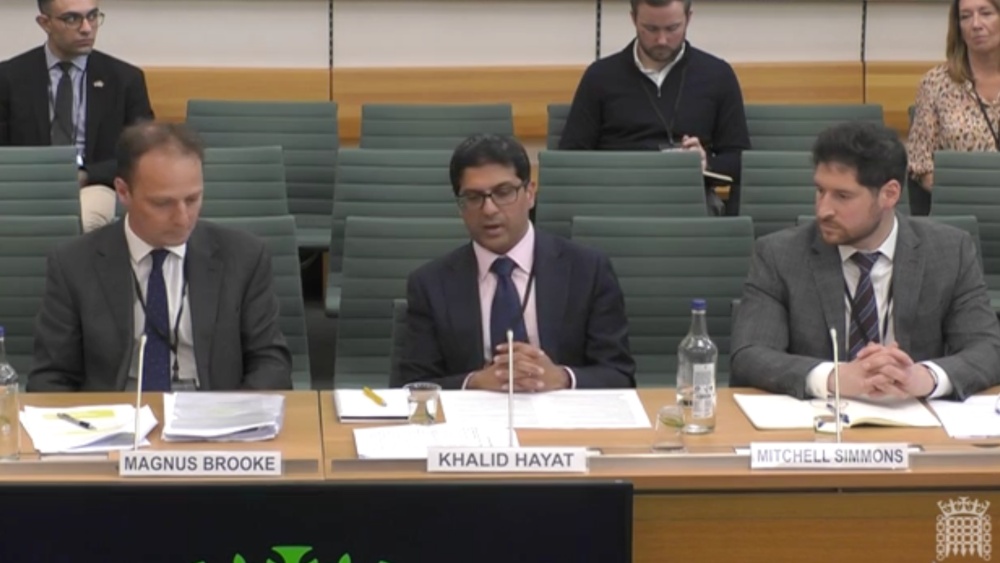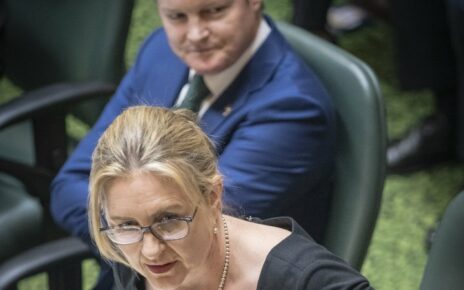A U.K. parliamentary inquiry that convened to gather evidence for the upcoming media bill pulled no punches, with top TV executives being probed on Tuesday.
Though the proceedings began with the House of Commons Culture, Media and Sport Committee chair Caroline Dinenage stating that the session was not about the “widely reported issues” at ITV show “This Morning,” committee members ploughed on nevertheless. (ITV CEO Carolyn McCall has been called to give evidence to the committee next week over an affair between former ITV anchor Phillip Schofield and a young employee.)
Appearing before the committee, Magnus Brooke, group director of strategy, policy and regulation at ITV, was asked about the duty of care that the editorial team and senior managers provide to staff, especially young staff, at “This Morning” and ITV in general. In response, Brooke said: “There’s a very sophisticated and significant system of safeguarding and duty of care at ITV, with a very significant set of policies.”
When asked about allegations of bullying at ITV, Brooke replied: “Bullying is absolutely in breach of our code of conduct, it is very clearly set out – we have a set of policies around bullying and harassment at work. And clearly, bullying is unacceptable.”
The committee also referred to a recent incident involving “This Morning” editor Martin Frizell, who said in response to a question from Sky News about a possible “toxic work environment” at “This Morning”: “I’ll tell you what’s toxic and I’ve always found it toxic. Aubergine [eggplant]. Do you like aubergine?”
The committee described Frizell’s remarks as “surreal and bizarre” and “being outrageously dismissive and flippant on camera about an immensely serious issue.” Brooke said that Frizzell’s words were “extremely ill judged.” “I can reassure you on behalf of ITV that we do take all of these allegations very seriously, precisely because we do have a culture in which people’s conduct matters enormously,” Brooke added. When asked if Frizell’s position was secure, Brooke said that it was not a question for him.
Meanwhile, Khalid Hayat, director of strategy and consumer insight at Channel 4, was asked about soaring wage bills at the broadcaster, programs being canceled at the 11th hour and if it was genuinely sustainable for the future. Channel 4 was threatened with privatization by the U.K. government — a plan that was scrapped in early January.
Hayat said that Channel 4 was in “very strong creative health,” pointing to the nine BAFTAs won last month, and that the level of investment in content in 2022 would be matched this year.
“The activities that we’re having to take in the short term, whilst we absolutely acknowledge are painful for some of our suppliers, and we’re very grateful to them for working with us through this period, they are activities that reflect short term market conditions,” Hayat said. “They don’t reflect in any way, any concerns about long term sustainability. And what we will be doing is briefing indies on our 2024-25 commissioning needs later this year in order to give forward visibility of our commissioning plans going forward.”
Channel 4 works on a model where all programming is outsourced to independent production companies. However, the proposed media bill will eventually allow Channel 4 to make and own some of its content.
Hayat was asked repeatedly by the committee if the broadcaster would in fact make its own content. “The government is providing the commercial flexibility and optionality for Channel 4. It will be a matter for Channel 4, the corporation and its board to decide whether and how to use that optionality,” Hayat said.
Also providing evidence on Tuesday was Mitchell Simmons, VP, public policy and government affairs at Paramount, which operates U.K. broadcaster Channel 5.
Read More About:
Source: Read Full Article


